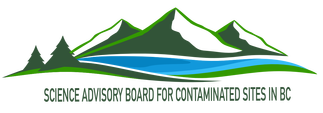Science Advisory Board for Contaminated Sites (SABCS) in BC – New Focus on Supporting Scientific Review of Regulatory Standards
The SABCS was established in 2003 as a non-profit foundation to conduct independent science-based reviews and to develop tools of benefit to professionals working in contaminated sites management in British Columbia (see website LIST URL for reviews, guidance and tools). Additionally, the SABCS has hosted an annual conference and workshop for the past 14 years, with a focus on emerging issues. Recently, the SABCS conducted a re-visioning process with one of the outcomes being the intention, where possible, to play a more direct role in supporting scientific reviews and standards development that are of significant relevance to the province of BC and practitioners working on contaminated sites.
As a first outcome of this process, we are delighted to announce the creation of a Science and Standards Technical Advisory Committee (SSTAC) comprised of a small group of members of the SABCS and BC ENV (Ministry of Environment and Parks). As an initial pilot project, the SSTAC will be tasked with providing advice on sediment standards issues and derivation process, which has been identified by BC ENV as a priority for updating of the Contaminated Sites Regulations (CSR) standards.
The SABCS will support this process through a number of activities, including:
– Facilitating a CSR Sediment Standards: Time for a 2025 Refresh! Your Insights Needed
Sediment standards under the Contaminated Sites Regulation haven’t had a full refresh since 2003. Help us fix that! 🎯 The SABCS & BC ENV collaborative Sediment Standards Project has opened a 15‑minute survey (June 1 to July 31) to capture practitioner insights on data gaps, bioaccumulation, and cumulative effects. Your feedback drives research priorities and 2025 Canadian Ecotoxicity Workshop (October 5-8, 2025) session themes. Take the survey ➡️ [HERE]
– Sponsoring a Sediment Standards Session (Holistic Protection of Aquatic Ecosystems – Modern Sediment Quality Assessment) at the Canadian Ecotoxicity Conference (CEW) conference in Victoria, BC, Canada on October 5-8, 2025. The session will include both knowledge sharing through scientific presentations and a moderated workshop component to solicit input.
– Establishing a Sediment Standards Working Group to tackle key research topics, such as holistic protection goals – Details to be Announced Soon.
Practitioners can get involved in this initiative by becoming members of the SABCS, completing the upcoming survey, joining us at the CEW conference session on Sediment Standards, and indicate your interest to participate in working group(s). For additional information on the SSTAC and workshop, please contact SSTAC co-chairs Dr. Shannon Bard and Mr. Jasen Nelson (please use general SABCS contact email info@sabcs.ca which will be forwarded to co-chairs).
Given the success of the annual SABCS conference and workshop over the years, it is with regret that the SABCS announces it will not hold a conference/workshop in 2025 (note it may do so in future years). With this different focus, the SABCS will leverage knowledge and expertise aligned with its mandate and continue to positively influence contaminated site outcomes in BC.



